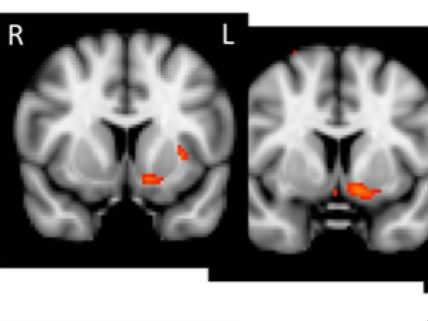Does Using Drugs 'Even Just Once' Change Your Brain Forever?

Last Friday Live Science reported the results of an unpublished study finding that "teens who have used drugs even just once in their lives have brain characteristics that are different from those who have never used drugs." That is the sort of finding that resulted in a mini pot panic a few months ago, after a study reported in The Journal of Neuroscience supposedly found that "marijuana re-shapes brains of users" (according to NBC News), that "even casually smoking marijuana can change your brain" (per The Washington Post), that "casual pot use impacts brains of young adults" (The Oregonian), that "recreational pot use" is "harmful to young people's brains" (Time), that "casual marijuana use" is "bad for young adults" (The Times of India), and that "even 'casual' marijuana use can knacker bits of your brain" (Gizmodo UK).
In both cases, the brain differences were measured by MRI scans at a single point in time, so it is impossible to say whether they were caused by drug use. It also is not clear whether the differences are permanent or, most important, whether they have any functional significance. But so far the newer study has not generated the same sort of sensational coverage (although that might still happen), possibly because the lead researcher, University of California at Davis graduate student David G. Weissman, says his findings probably reflect pre-existing differences among his subjects.
Here is how Live Science describes the results of Weissman's study, which involved 71 Mexican-American 16-year-olds:
Among teens who'd ever used drugs, a brain region known as the nucleus accumbens—which is thought to play a role in the rewarding feeling that can come with taking drugs—was more in sync with areas of the brain in the prefrontal cortex, compared to in teens who'd never used drugs. The prefrontal cortex is involved in decision making, planning and other behaviors that require complex thinking.
But the nucleus accumbens was less in sync with an area near the hippocampus, which is important for memory formation, in teens who had used drugs, compared with those who had never used.
Weissman thinks these differences, rather than resulting from drug use, made the subjects more inclined to use drugs:
Weissman said he suspects that these brain differences existed before drug use, and underlie a tendency to take risks, which includes using drugs, he said.
Weissman said the level of drug use among the teens in the study was typical of teens that age —about half had used drugs before, and they did not use drugs very frequently.
"It's possible, but seems unlikely, that that level of use would produce significant changes [in the brain], but it's an open question," Weissman said.
Whichever direction the causality runs, making a big deal of Weissman's findings seems unwarranted. Among older teenagers, drug use is not aberrant; it is normal. Since survey data indicate that most Americans have consumed drugs (most commonly alcohol, tobacco, and/or marijuana) by the time they turn 16, perhaps it is abstinence that requires an explanation.
[Thanks to Ron Steiner for the tip.]


Show Comments (93)